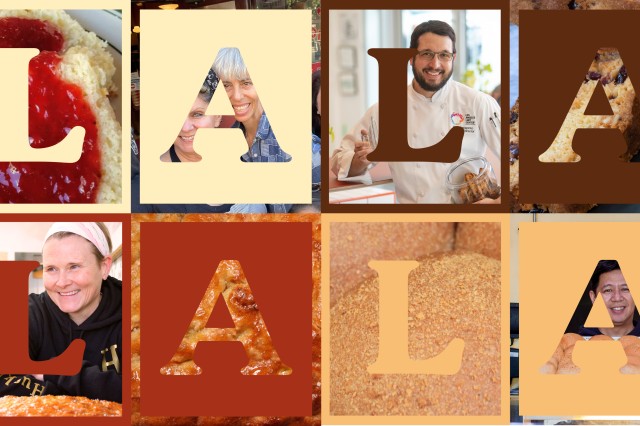
Explore Stories
BE ADVISED: On Saturday, February 21, the Natural History Museum will be closing at 4 pm. The Los Angeles Memorial Coliseum will host the LAFC vs. Inter Miami soccer match, with kickoff at 6:30 pm. This event will impact traffic, parking, and wayfinding in the area due to street closures. Please consider using public transportation or rideshare.
BE ADVISED: The Natural History Museum is not participating in SoCal Museums Free-for-All on Sunday, February 22.
BE ADVISED: On Saturday, February 21, the Natural History Museum will be closing at 4 pm. The Los Angeles Memorial Coliseum will host the LAFC vs. Inter Miami soccer match, with kickoff at 6:30 pm. This event will impact traffic, parking, and wayfinding in the area due to street closures. Please consider using public transportation or rideshare.
BE ADVISED: The Natural History Museum is not participating in SoCal Museums Free-for-All on Sunday, February 22.
Nick Panepinto | Liberation Coffee House
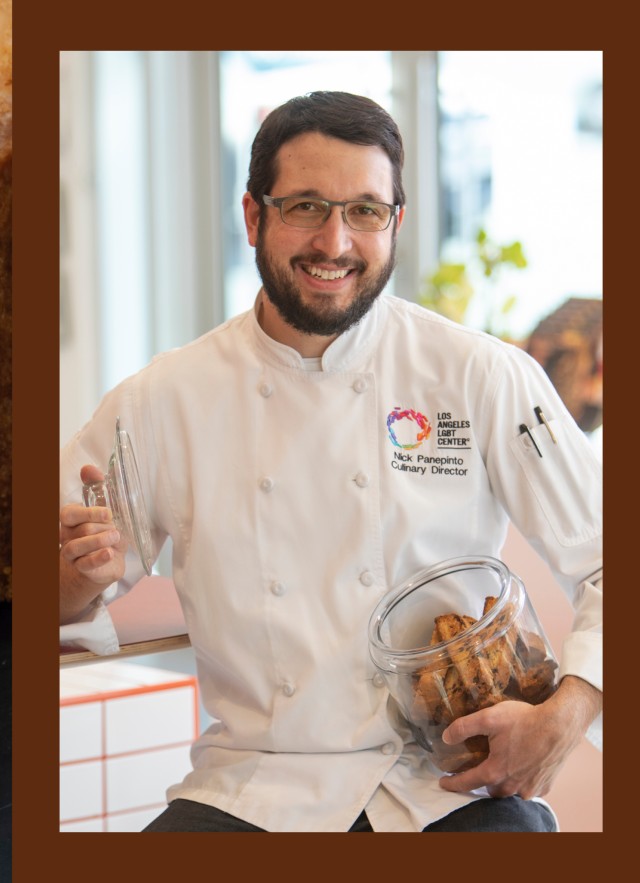
Chef Nick Panepinto, Director of Culinary Training and Operations at Liberation Coffee House, is passionate about community, food, and social enterprise. He shares how developing a culinary arts program that builds relevant skills for youth and older adults created a sense of welcome, warmth, and love for the community.
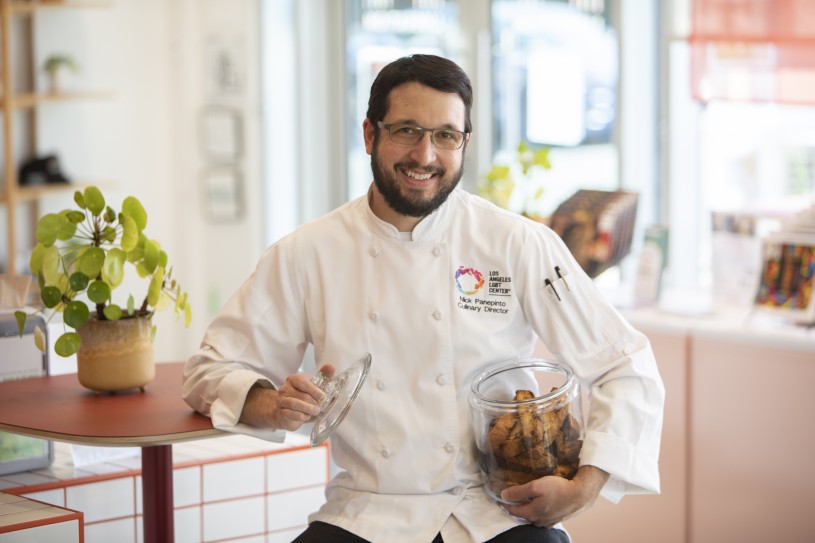
I have always said, when you're in search of community, you go to where people love food– because you’ll find the right people!
Chef Nick Panepinto
I always grew up cooking with my family– we cooked with my grandparents and my parents. When I was considering college, I realized that I wanted to express my creative side and had an interest in business or food. When I went to the Culinary Institute of America (CIA), I felt like I found where I belonged. Since I graduated from the CIA, I’ve looked for ways to work with food both inside and outside the kitchen. I've done everything from luxury hotels to operations management for a vegan restaurant to menu oversight and coordination for 10,000 meals per day with an airline catering facility. Food is everywhere!
When I moved to Los Angeles with my partner, I wanted a career shift to explore the nonprofit space. At the same time, I was really struggling to feel like I was part of the community here in L.A. So I started volunteering at L.A. Kitchen, which unfortunately is now closed but was amazing. They provided a culinary training program for those aging out of foster care or recently incarcerated people. The organization repurposed food that would have otherwise gone to waste to provide nutritious meals for the community. It was here that I networked with an amazing group of people in Los Angeles. I have always said, when you’re in search of community, you go to where people love food–because you’ll find the right people! And so, when the Los Angeles LGBT Center opened, Chef Susan Feniger was interested in a culinary arts program here at the center, and I moved over to help start the program here.
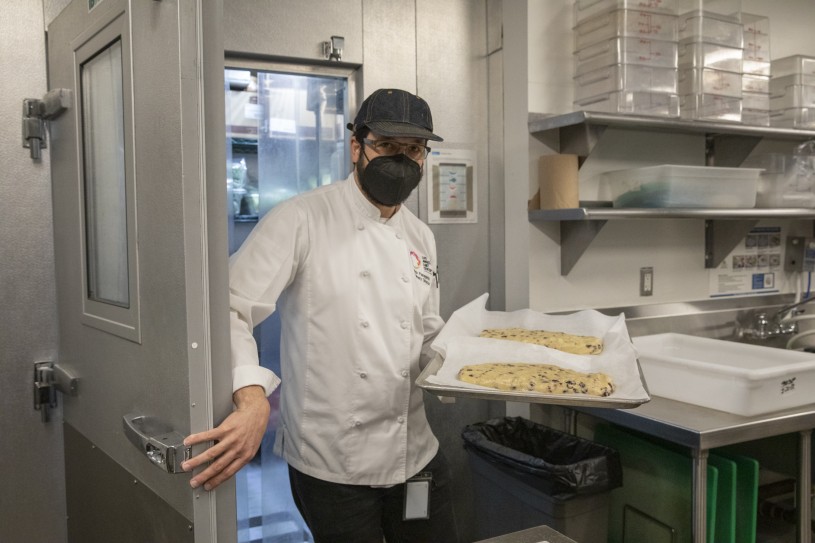
We wanted to create a customer-facing area for the culinary arts training program at the Los Angeles LGBT Center. So we developed a space that would be casual and embrace the community. Liberation Coffee house is great because it is a social enterprise, so all the money we raise in the cafe goes back to supporting all the programming at the Los Angeles LGBT Center. It also gives jobs to students who graduated from our culinary arts training program.
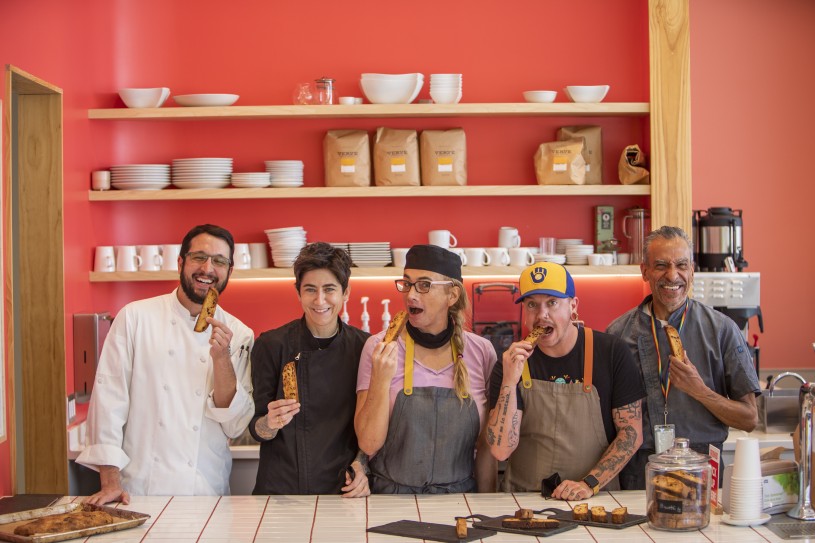
Another vital part of the cafe is that it allows the neighborhood to interact with the Los Angeles LGBT Center in a new way. The center has been in Hollywood for over 50 years now, but you didn't have access to the center unless you were specifically looking for services or visiting one of our galleries. Now, we have people in the apartments surrounding us or in the local businesses that visit us, and we are becoming more integrated with the community. I like to say it’s like the cafe is the new living room of the center.
Also, there aren’t many LGBTQ+ businesses left in the community. So this space becomes a gateway for people who might not know how to ask for support, a home, or jobs. It is easy to look online, but you might not feel comfortable reaching out–so when people come into our cafe and meet our friendly staff, we often refer many people back to our services. The cafe is not only a place to sell delicious coffee, pastries, and food–we also try to create a safe space where everyone feels comfortable coming in for whatever they need.
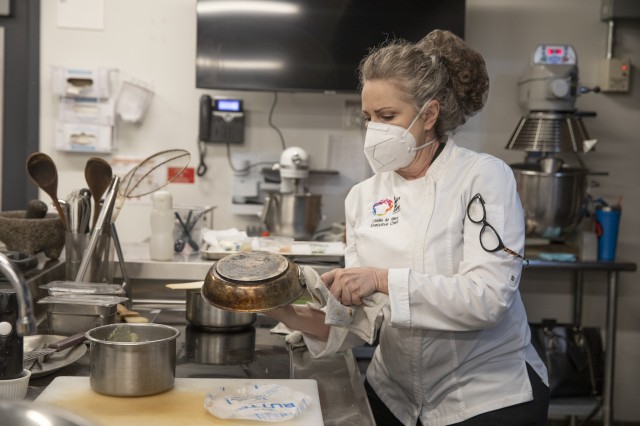
Natural History Museum of Los Angeles County
Culinary Arts Executive Chef Leslie M. Riley oversees the intergenerational culinary arts program at the Los Angeles LGBT Center.
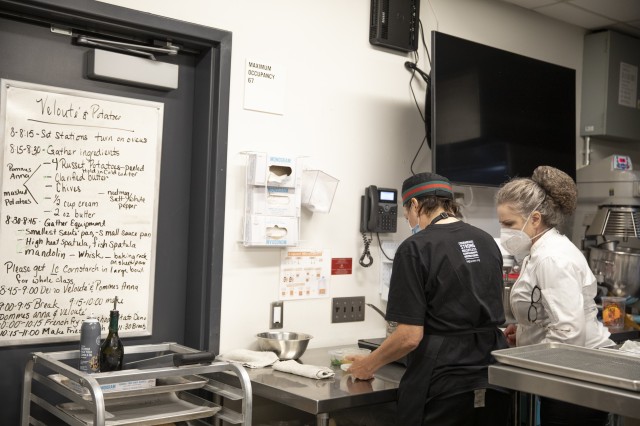
Natural History Museum of Los Angeles County
The commercial teaching kitchen provides a space for an extensive training program and preparation for daily meals served to youth members and senior clients.
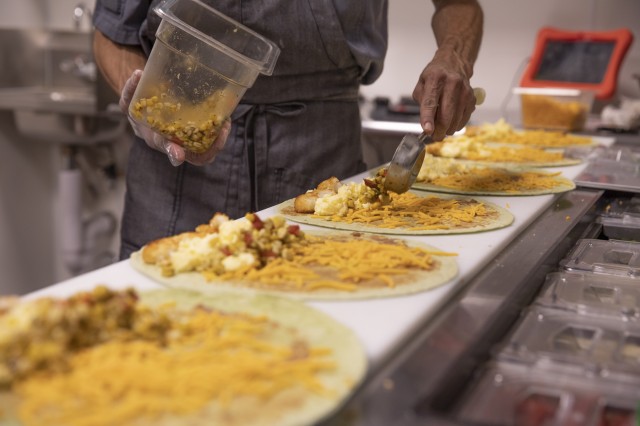
Natural History Museum of Los Angeles County
The culinary program assists in launching new careers while providing much-needed nourishment for the members of the Los Angeles LGBT Center, 365 days a year!
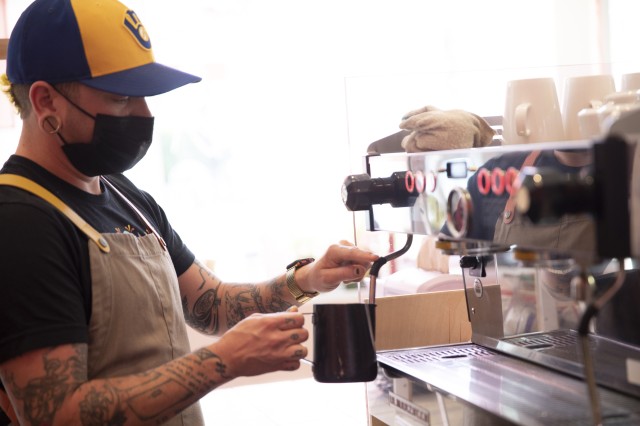
Natural History Museum of Los Angeles County
The welcoming baristas whip up coffee, frappes, and teas for the diverse clientele of Liberation Coffee House.
1 of 1
Culinary Arts Executive Chef Leslie M. Riley oversees the intergenerational culinary arts program at the Los Angeles LGBT Center.
Natural History Museum of Los Angeles County
The commercial teaching kitchen provides a space for an extensive training program and preparation for daily meals served to youth members and senior clients.
Natural History Museum of Los Angeles County
The culinary program assists in launching new careers while providing much-needed nourishment for the members of the Los Angeles LGBT Center, 365 days a year!
Natural History Museum of Los Angeles County
The welcoming baristas whip up coffee, frappes, and teas for the diverse clientele of Liberation Coffee House.
Natural History Museum of Los Angeles County
Yes, our Lead Cook and Baker, Andrew John Gonzalez, is the perfect example of our welcoming culture. Andrew was one of the seniors enrolled in our first class of the program. Like many older adults who entered the program, he was looking to reinvent himself and his skills after a successful career in the early part of his life. The youth in our program benefit from the level of maturity and life experience of the seniors and their mentorship.
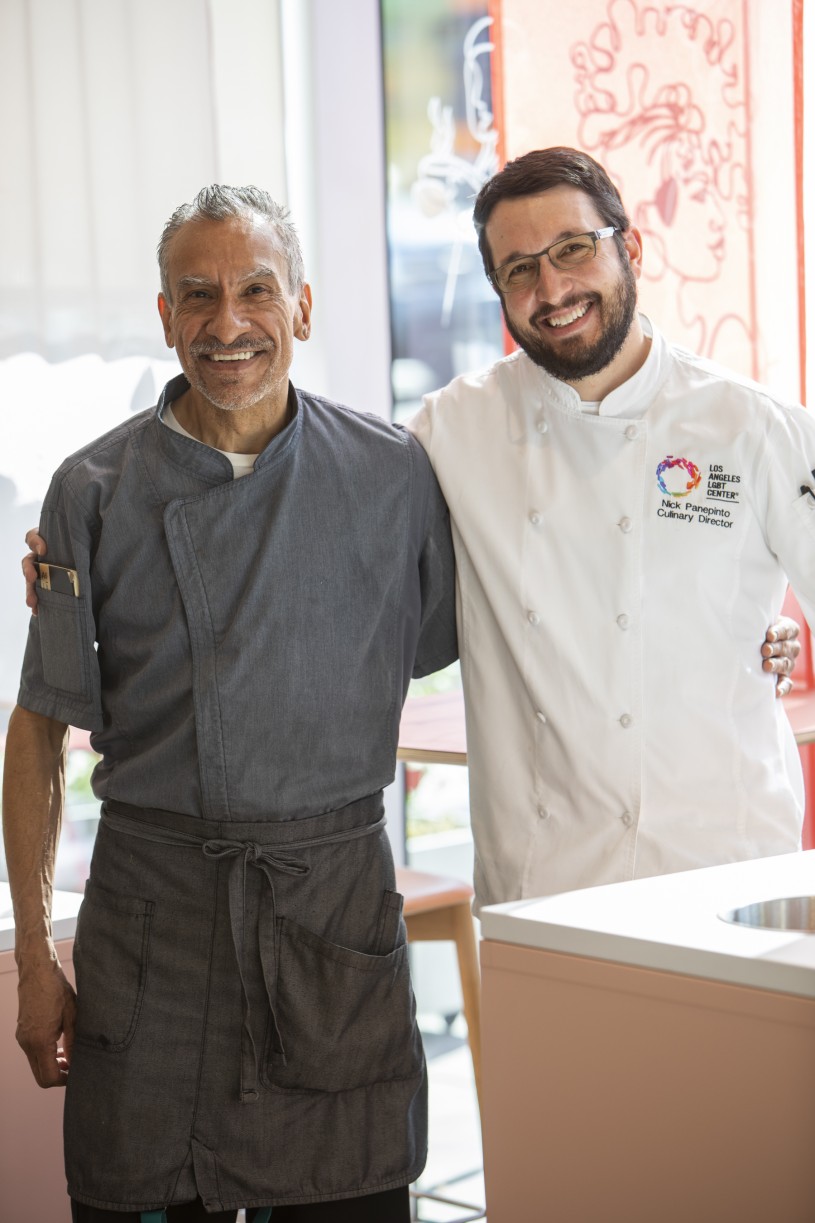
Andrew specifically had such great attention to detail and a passion for food when he was in the program. We always say that love is the most important ingredient you can put into your food–and so when we talk about someone who’s going to put the love and passion into their food, we knew that Andrew had to work in the cafe.
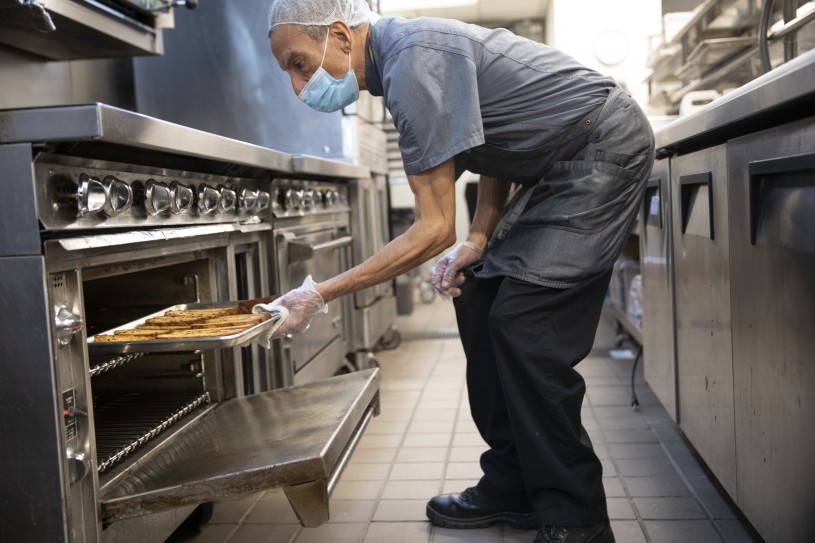
I grew up helping my mom, grandmother, and aunts in the kitchen–all warm, wonderful women who taught me from a young age how to cook. As a 61-year-old now, I can say that you can never stop learning. I loved being in this culinary program because of the diversity of people. The diversity is wonderful because it shows what our LGBT Center is all about. The most important thing to me is love. I put a lot of culinary love into my baking.
Andrew John Gonzalez | Lead Cook & Baker
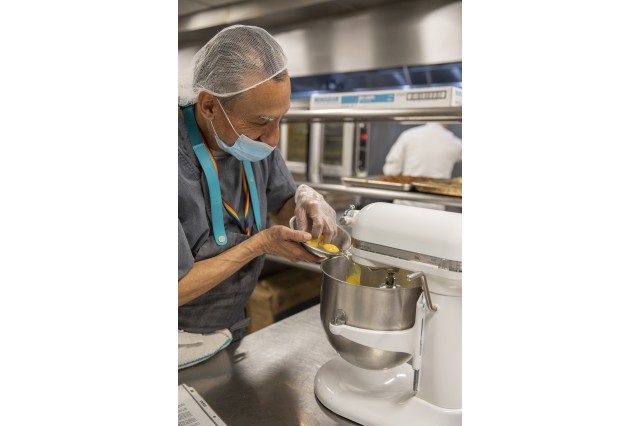
Natural History Museum of Los Angeles County
Andrew diligently begins his prep of the biscotti.
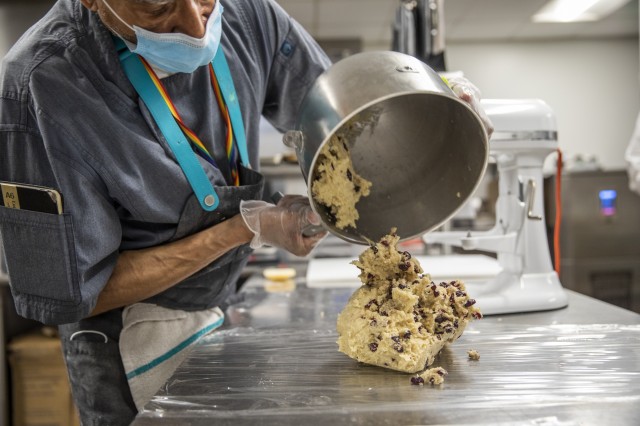
Natural History Museum of Los Angeles County
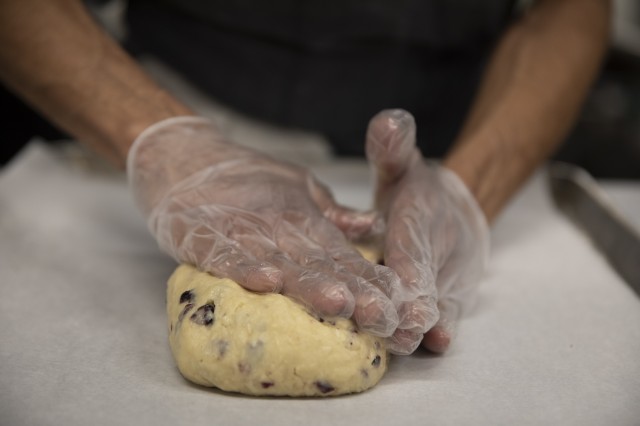
Natural History Museum of Los Angeles County
Andrew carefully shapes the biscotti dough.
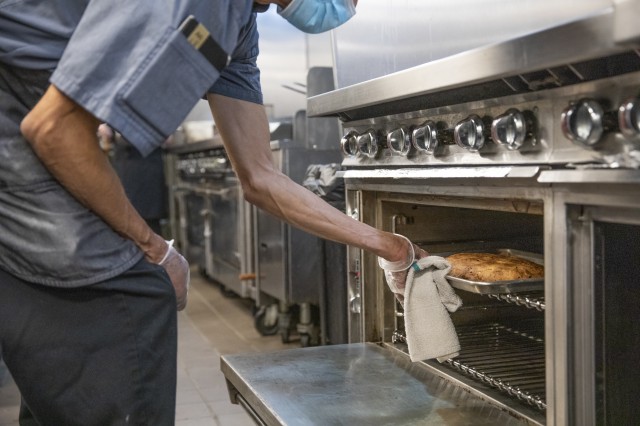
Natural History Museum of Los Angeles County
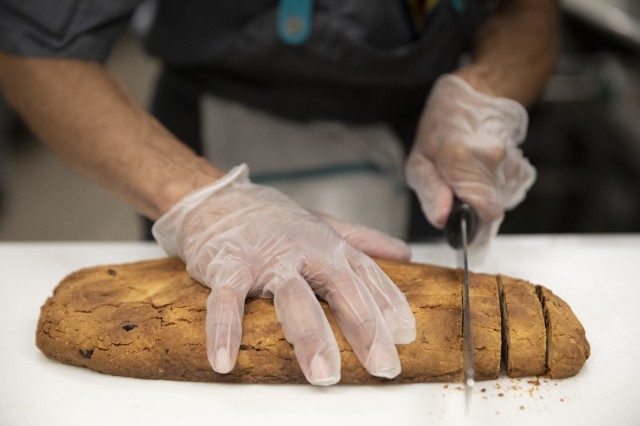
Natural History Museum of Los Angeles County
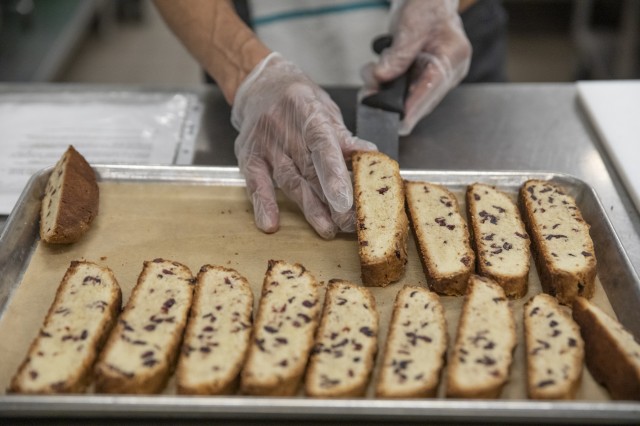
Natural History Museum of Los Angeles County
After the first bake and slicing, the biscotti is carefully laid on a baking sheet and is ready for the second bake.
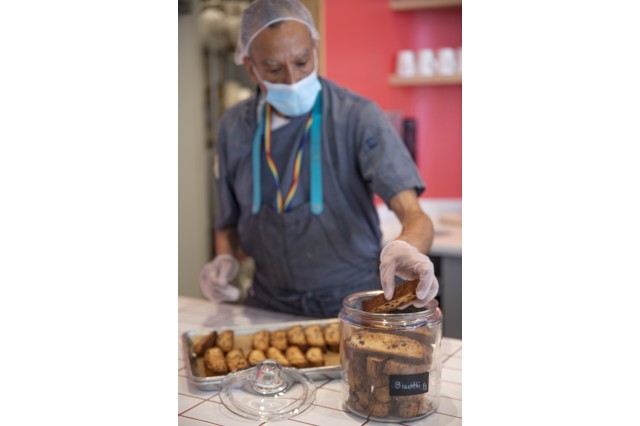
Natural History Museum of Los Angeles County
Andrew carefully places the lovingly baked biscotti in a jar for customers.
1 of 1
Andrew diligently begins his prep of the biscotti.
Natural History Museum of Los Angeles County
Natural History Museum of Los Angeles County
Andrew carefully shapes the biscotti dough.
Natural History Museum of Los Angeles County
Natural History Museum of Los Angeles County
Natural History Museum of Los Angeles County
After the first bake and slicing, the biscotti is carefully laid on a baking sheet and is ready for the second bake.
Natural History Museum of Los Angeles County
Andrew carefully places the lovingly baked biscotti in a jar for customers.
Natural History Museum of Los Angeles County
The biscotti contributes to the cafe, creating a warm and welcoming space through its aroma. When we bake them, you can smell the biscotti when you open the doors and walk in. The almond flour creates a beautiful smell, and everyone in the space can sense that we bake with love.
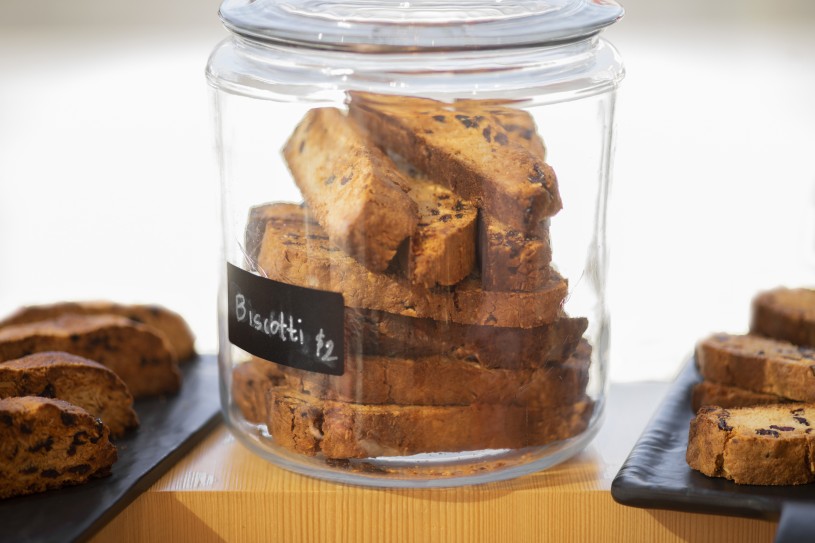
Also, biscotti is very approachable–both to make and to eat. It’s not the most intricate pastry, so it’s very forgiving for our students to complete. I also love that they are affordable at two dollars apiece and something that everyone can purchase. When we priced the cafe [items], we wanted to make sure you could get a biscotti and coffee for five dollars. It was important because we felt that so many things are not affordable to people in the Hollywood area.
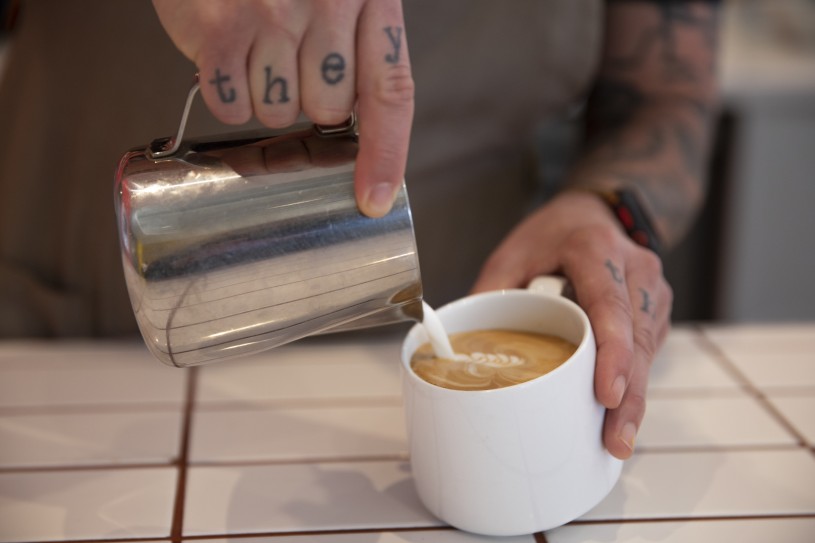
I’ve talked about the smell; that is my favorite part, which comes after the second bake. After they are sliced and placed back in the oven, the toasting of the almond flour creates that smell. So when you see that golden color and get a whiff of the toasted flour, it is so satisfying.
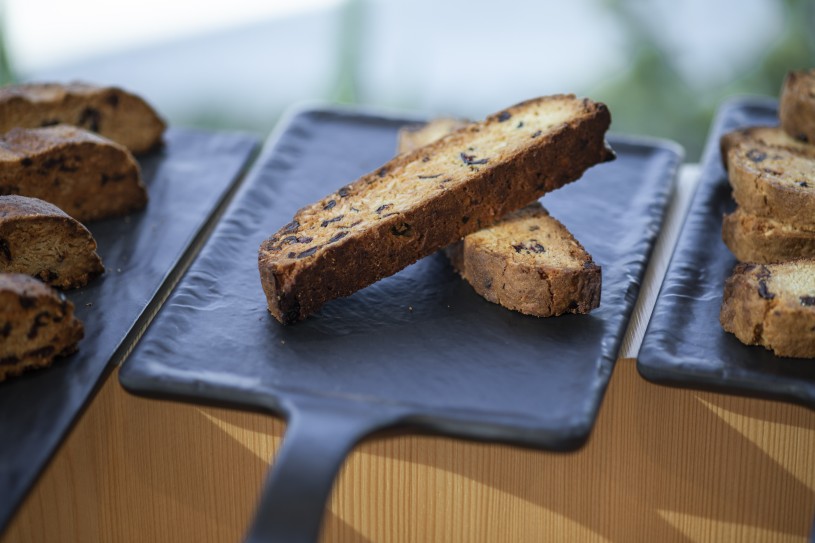
While the Los Angeles LGBT Center focuses on the LGBTQ community, we also are about embracing all of Los Angeles. The social enterprise of the cafe and center is where all of this comes together. We feel it’s important for businesses to be part of the solution when we look at how we can make our community a better place to live. When done right, businesses can be an active part of the solution to helping end homelessness, get people jobs, and help with food insecurity in Los Angeles.
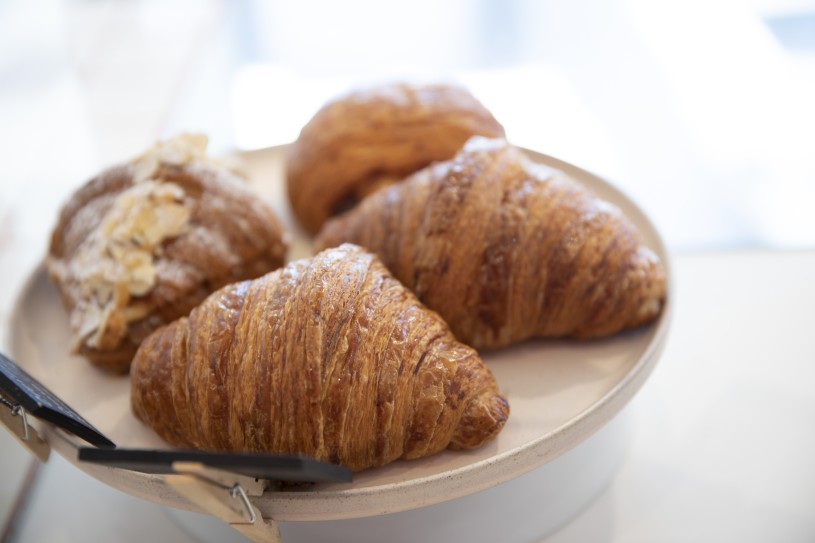
Also, while I wish we could bake every croissant and pastry at the cafe, we do outsource some of this work to Bakers Kneaded, a community-driven wholesale bakery based in East L.A. They use really high-quality California-grown ingredients but also commit to hiring locally.
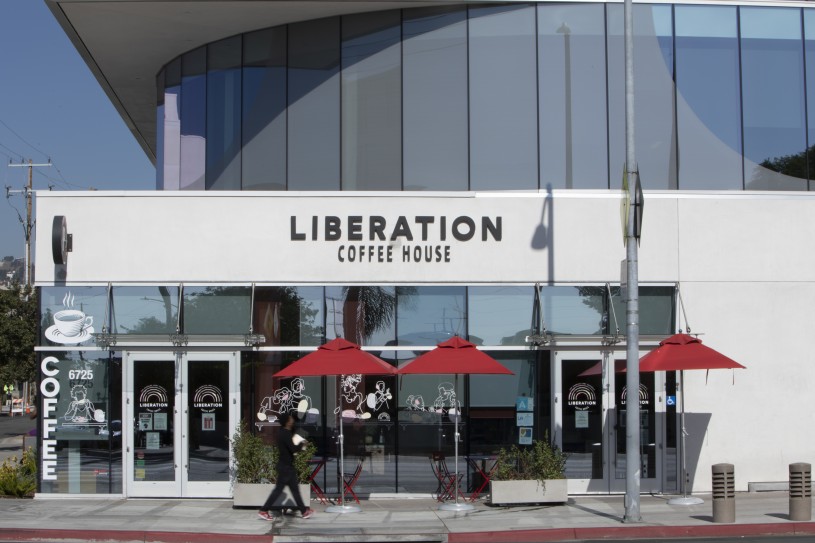
To see what baking at Liberation Coffee House, go to liberationcoffee.lalgbtcenter.org or visit them in person at the Los Angeles LGBT Center’s Anita May Rosenstein Campus located at 6725 Santa Monica Boulevard, Los Angeles, CA 90038.
Do you know an L.A. breadmaker who lovingly connects to your community? Do you want to share your favorite experience at Liberation Coffee House? Join the conversation by tagging @NHMLA with #KneadedLA, and your story could be featured next!
Following the success of Kneaded: L.A. Bread Stories, we're celebrating the history, heritage, and communities of Los Angeles through the lens of different cultural traditions. This year, L.A. at Play highlights the vibrant and visionary work of artisans who fabricate dolls and figurines using a variety of techniques and materials.